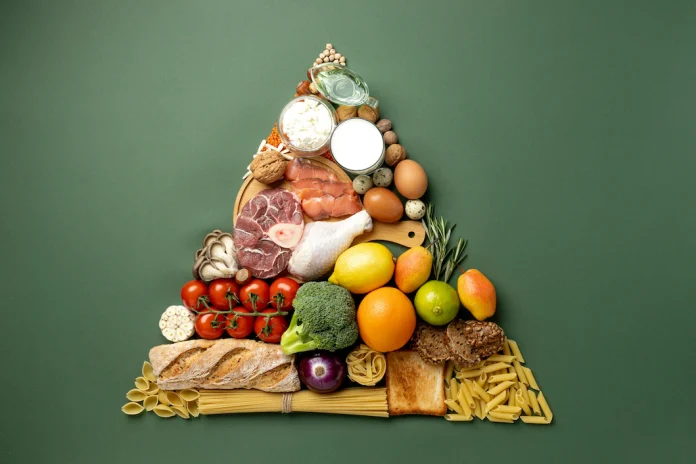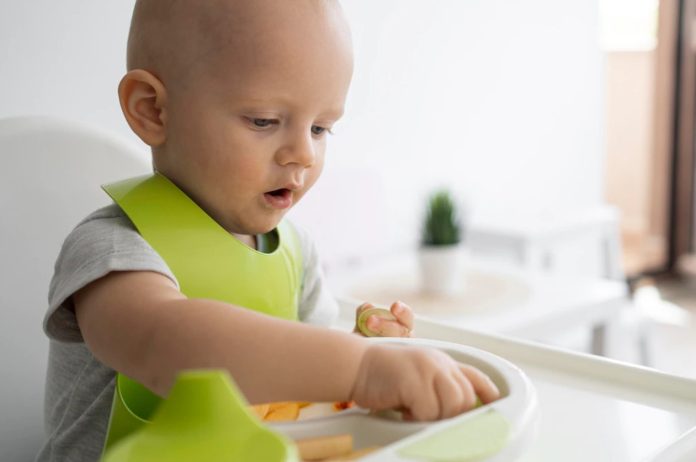As you’re probably aware, toddlers start developing their personalities and preferences at age two. It means they’re more likely to want to eat what they like when they like it.
However, you must ensure they’re still getting the right balance of nutrients and vitamins into their growing bodies.
Now, you may wonder how much your toddler should eat and what kind of food they should eat. Knowing this is essential because your toddler’s development is at stake. There are baby food recipes that you can try to ensure your toddler gets to eat the right food for their growth.
For instance, when you click here or other baby food company sites, you’ll find baby food recipes and food packs that you can consider for your toddler. Nonetheless, in this article, you’ll learn more about what your toddler should eat and how much they should eat.
Knowing What Your Toddler Should Eat
Knowing what your toddler should eat is a big deal. Toddlers are just starting to get a grasp on their eating habits. They’re learning what they like and don’t like and how much of it they need to get by. And as a parent, you are responsible for what your toddler eats, so ensure you prepare what’s best for them.
All parents want their toddlers to grow up healthy. However, it can be hard to know what they should eat. Here are some ways that’ll help you make sure your toddler eats the right food:
Know The Food Pyramid

Following the food pyramid when preparing meals is a great way to ensure your toddler gets all the necessary nutrients. It’s divided into different sections, each representing a different kind of food. At the bottom are grains, which are full of fiber and vitamins.
Succeeding them are vegetables and fruits with lots of vitamins and minerals.
Next come dairy products such as milk and cheese, meat, and beans—these foods provide protein, iron, zinc, and other essential nutrients. Lastly, at the top of the pyramid are oils and sweets; these foods contain lots of calories but not much nutrition. Knowing the food pyramid is an excellent way to determine what your toddler should eat. You can follow the appropriate serving for each group when preparing meals for your child.
Provide Variety

When it comes to feeding your toddler, variety is the spice of life. Toddlers love to try new things and experiment with different foods. But that’s not the only reason you should give them a wide range of foods; it’s also essential for their development. Introducing new foods at this stage of life will teach your toddler more about what they like and don’t like. Doing this is especially helpful to know if they have any food allergies or sensitivities that might lead them to avoid certain types of food later on in life.
Consult A Pediatric Nutritionist

Pediatric nutritionists are experts in child growth and development. They can help you determine the best way to feed your child. They can also work with you on any dietary restrictions or sensitivities your child may have. And they also ensure they get all the nutrients they need to grow appropriately.
If you’re wondering what your toddler should eat, it’s best to consult a pediatric nutritionist. There are many options for feeding your child, and you may be unsure how to proceed. A pediatric nutritionist can help you determine what foods are best for your toddler and how much of each food they should have.
Knowing How Much Your Toddler Should Eat

As a parent, you want your toddler to grow up healthy, but how do you know if your toddler is getting enough nutrients? It can be hard to tell. As a parent, you may worry about whether your baby is not getting enough or consuming too much food, especially when both extremes are common.
There could be a lot of conflicting information about what’s ‘normal’ regarding toddlers’ eating habits. Some people might say that you should feed toddlers until they’re full.
Others might say babies need to be on a diet because they won’t eat what they need unless you force them (this can cause malnutrition). Additionally, some parents might say toddlers should eat three meals plus snacks throughout the day.
Knowing the right amount of food for your toddler’s age is essential, but it can be tricky.
First, you should know that most toddlers are pretty good at self-regulating their food intake. If they’re hungry, they’ll eat; if not, they won’t. It’s also important to remember that toddlers don’t have the exact nutritional needs as adults do. For instance, they don’t need as much iron or calcium because their growing bodies don’t require them yet.
Although if you’re breastfeeding, you’ll want to ensure your child is getting enough of these nutrients.
Knowing how much your toddler should eat depends on age, activity level, and sex.
However, experts recommend that toddlers eat three meals and two snacks daily. It will ensure they get enough calories to support their growth and development without overeating. Furthermore, the American Academy of Pediatrics recommends that toddlers between 12 and 24 get about 1,200 calories per day. Also, they suggest that children between the ages of 1 and 3 years eat fruits and vegetables with 1 ounce of whole grains and 3 ounces of protein-rich foods (such as lean meats) per day.
If your toddler’s behavior at meals worries you, giving you problems on what to feed them or how much, you should consult a pediatric nutritionist. These professionals can help you determine your child’s needs based on their age and weight.
The nutritionist first gets an idea of your child’s current eating habits. It includes their appetite, what they eat at home and outside, how much they drink, and how much they sleep each night. Then they will determine why your child isn’t eating enough food by asking questions about what your toddler eats (or doesn’t eat) at certain times. The goal is to determine whether any particular triggers cause your child not to want more food and then make small changes accordingly.
Conclusion
Knowing how much to feed your toddler can be challenging to determine. Hopefully, the guide above has answered your question. Always be conscious of their food intake and nutritional content. It will ensure your toddler grows as you desire them to.








